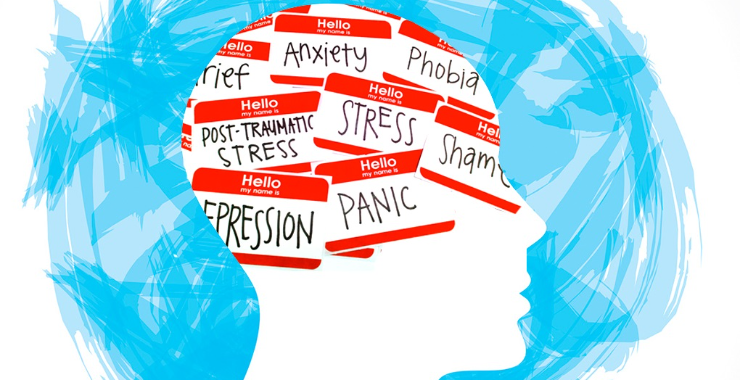Role of Physiotherapy in Mental Health

The International Organization of Physical Therapy in Mental Health (IOPTMH) developed a definition that generally describes the field of physiotherapy in mental health that is recognizable among most colleagues across the world. Physiotherapists in mental health provide health promotion, preventive health care, treatment and rehabilitation for individuals, groups and in-group therapeutic settings.
Mental illnesses also referred to as mental health disorders are health conditions associated with variations in behavior, thinking or emotion (or a combination of these). Examples of mental illness include depression, anxiety disorders, psychotic disorders, eating disorders and addictive behaviors.
Numerous people have mental health anxieties, but a mental health concern becomes a mental illness when ongoing signs and symptoms cause regular stress and affect your ability to function in daily life such as school or work or any other social relationships.
In many cases, symptoms can be managed with a combination of medications and psychotherapy. If you have a mild mental illness with well-controlled symptoms, treatment from your primary care provider may be sufficient. However, often a team approach is appropriate to make sure all your psychiatric, medical and social needs are met.
Some of the common signs and symptoms include
Extreme mood changes of highs and low and confused thinking or reduced ability to concentrate, Suicidal thinking, Excessive fears or worries, or extreme feelings of guilt, Withdrawal from friends/activities and detachment from reality (delusions), paranoia or hallucinations, Significant tiredness, low energy or problems sleeping, Incapability to cope with daily problems and Problems with alcohol or drug use
Causes of mental health disorders
A number of factors can contribute to risk for mental illness, such genetic and environmental factors:
- Inherited traits. Certain genes may increase your risk of developing a mental illness, and your life situation may trigger it.
- Environmental exposures during pregnancy. Exposure to environmental stressors, inflammatory conditions, toxins, alcohol or drugs while in the womb can sometimes be linked to mental illness.
- Brain chemistry. Neurotransmitters are naturally occurring brain chemicals that carry signals to other parts of your brain and body. When the neural networks involving these chemicals are impaired, the function of nerve receptors and nerve systems change, leading to depression and other emotional disorders.
The Role of Physiotherapy in Improving Mental Health
There is also a positive correlation between mental health conditions and people reporting chronic pain. Improved physical health can improve psychiatric and social disability. Several physiotherapy interventions are potentially effective in improving physical and mental health and health- associated quality of life. Physiotherapists have also a major role in the treatment of patients with schizophrenia (a mental disorder in which people interpret reality abnormally). In particular, physiotherapists are physical health experts providing an important bridge between physical and mental health in patients with schizophrenia.
Protecting your health information at every step.
Who we are
Tibabu is your go to health and medical centre, we combine our passion for love with our love for humanity. We understand that your health defines us and believe that we are God's instruments, dedicated to delivery of the best quality healthcare.
Useful Links
Our Contacts
Dereshe Towers Off Murang'a Road,
Ngara, 4107 - 00506, Nairobi